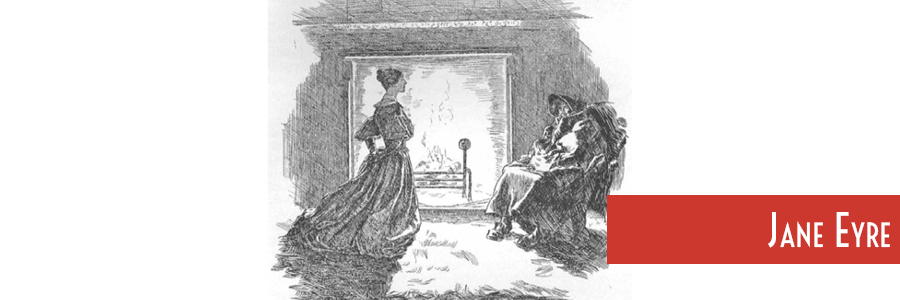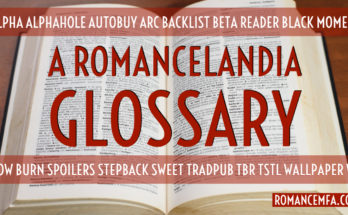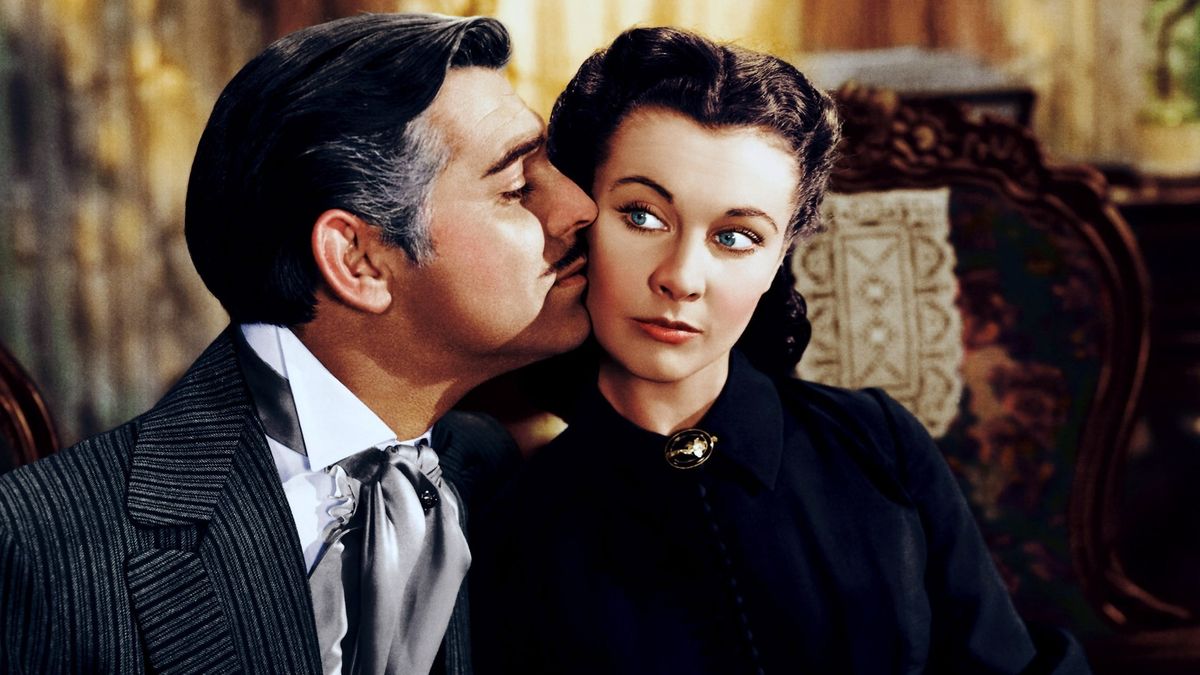Following on Pride and Prejudice, I’m looking at another classic romance: Jane Eyre. I’ll give you the quick details in case you don’t already know them, and then I’ll look at the romance tropes in Jane Eyre.
Book details:
Title: Jane Eyre
Author: Charlotte Bronte
Original publication date: 1847
Setting time & place: Early 19th century Northern England: a charity school, a country estate, a small village
He is… a rich man of good breeding, “unmarried” in his late thirties, intelligent but not handsome, passionate of feeling but deeply unhappy.
She is… an intelligent young woman, not yet twenty, orphaned and raised mainly at a charity school, where she acquired enough education to hire herself out as a governess.
Reasons to read this title: Like Pride and Prejudice, Jane Eyre is an important title for cultural literacy.
My review of Jane Eyre
Is it a romance novel? Yep. Obstacles are overcome and we end with two characters sharing wedded bliss.
Is it a must read romance novel? Yep. Cultural literacy. Archetype of a brooding hero.
I really don’t know why I hadn’t read Jane Eyre before. I did attempt it in 8th or 9th grade, but never got past the first chapter — and even so I already knew the big plot twist at the end, which I will try not to mention in case you don’t know what happens. Having finally read it, I know that it is the source of another common romance quote: “Reader, I married him.”
That’s enough vagueness. Let’s look at the romance genre tropes in Jane Eyre.
1. The Witty Heroine
From their first meeting, Jane is quick to speak her mind to Rochester. He is, of course, enchanted.
2. He is so rich.
She’s a penniless orphan working for her room and board, he is the employer who owns multiple estates and is sought after by young ladies of the neighborhood.
3. He is dark and brooding.
The whole novel is pretty dark and brooding, but Rochester is a personification of a cold, rainy November night, gloom which can only be redeemed by a good roaring fire. After Byron himself, Rochester is one of the original Byronic heroes.
4. She is unattractive; no one could ever love her.
While Jane has already learned the disconnect between inner and outer beauty which tripped Elizabeth and the rest of the Bennets up in regards to Wickham, she doesn’t initially have any hope that others will see her inner beauty.
5. He is unattractive; no one could love him (unless they want his money/respectable name).
This leads to my favorite interaction, which I will paraphrase.
R: Do you think me handsome?
J: No, sir.
R: You do have a funny way of speaking.
J: Sorry, I should have said something more polite.
R: DO YOU LIKE MY FOREHEAD
#phrenology
6. The Spiteful Other Woman
Blanche Ingram, Jane’s main (visible) rival for Mr. Rochester’s affections is, like Caroline Bingley, a mean girl who stakes her claim on the hero, only to have her marriage plans thwarted.
7. He’s going to buy her all the pretty things.
Once they have agreed to marry, Rochester is determined to outfit Jane with new clothes and all the other accompaniments. Like Pamela before her, Jane objects to having money spent on her person.
R: I prefer you to an entire Turkish harem.
J: Away with you, sir, to the bazars of Stamboul without delay; and lay out in extensive slave-purchases some of that spare cash you seem at a loss to spend satisfactorily here.
8. A choice between impractical passion or passionless practicality.
Rochester:
“I sometimes have a queer feeling with regard to you—especially when you are near me, as now: it is as if I had a string somewhere under my left ribs tightly and inextricably knotted to a similar string situated in the corresponding quarter of your little frame.”
St. John:
“God and nature intended you for a missionary’s wife. It is not personal, but mental endowments they have given you: you are formed for labour, not for love.”
Who is she going to choose??
9. The Ward
Rochester has taken a young child into his home, for reasons. Whether Adele is his natural daughter or not, her existence gives him a chance to demonstrate, however ineptly, that he is not an entirely selfish creature. Many a romance hero and heroine after Rochester will find themselves caring for a child in concert with their love interest.
10. The Alluring Governess
Outside of the house party, the new governess is an excellent mechanism for bringing a woman into a man’s house and keeping her in his sight until they begin their inevitable progress toward the HEA.
That’s all the tropes which jumped out at me on this reading. I’ll be back next week to compare and contrast Jane Eyre with previous readings.



